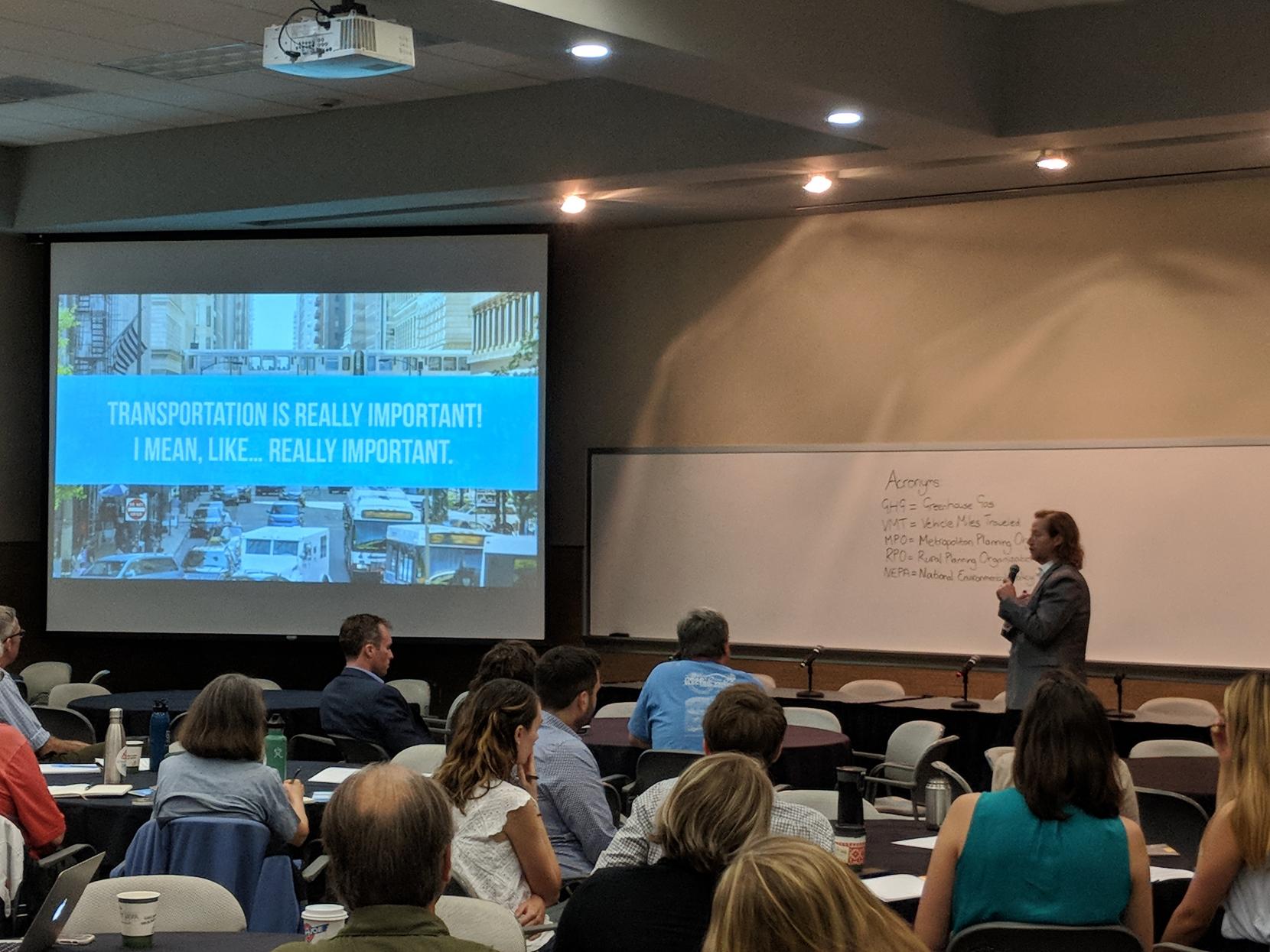Cross-sector collaboration: Groups tackle climate change through transportation reform
As the leading source of greenhouse gas emissions nationwide—and a close second in North Carolina—transportation has a vital role to play in reducing further climate change. Reform efforts in North Carolina got rolling last Tuesday when leaders from government, nonprofits, and the private sector joined together for a day-long discussion about transportation and climate change – the first such event ever held in North Carolina. The “Road to Change” event was co-sponsored by SELC and NRDC and was intended to spark cross-sector collaboration to tackle climate change through transportation reform.
The day began with a call to action by SELC Senior Attorney Kym Hunter, who urged that the time to act on climate change is now.
“The transportation sector is so important, and we need collaboration to bring about reform,” says Hunter.
Jeremy Tarr, policy advisor to Governor Roy Cooper on the environment, energy, and transportation, echoed Hunter’s remarks. He gave an overview of the governor’s executive order on climate change (Executive Order 80), which set a statewide greenhouse gas reduction goal of 40 percent below 2005 levels by 2025. Tarr also stressed the role that transportation must play in meeting these targets, and outlined some of the directives that the Department of Transportation has begun to implement.
The packed room at North Carolina State University’s McKimmon Center in Raleigh then heard from leading transportation experts. First, Doug Kaufman, the CEO of smart mobility company TransLoc, stressed the importance of public transit and described how micro-transit can play a role in immediately moving to a less car-dependent culture in existing, less dense suburban developments.
Doug Kaufman, CEO of TransLoc
In his keynote address, North Carolina Secretary of Transportation Jim Trogdon detailed how the state is already feeling the impacts of climate change, focusing on the severe storms that have devastated communities and increased the agency’s annual response costs nearly fourfold in the last few years. Secretary Trogdon ended by warning that the current path we are on is unsustainable and that we need a new vision for transportation in North Carolina.
Building on these insights, panels from three different sectors shared their experiences and perspectives on transportation reform. Members of the North Carolina General Assembly discussed current challenges in achieving reforms given the gridlock in that body, and the lack of widespread understanding that climate change is an emergency we must tackle. Representative Chaz Beasely noted the importance of working collectively with our local government leaders to ensure that transportation and land use decisions are made in concert.
Local government leaders and private sector developers and planners also emphasized land use planning as key to tackling climate change. They emphasized that we should build towns that are transit friendly and walkable, not just in order to tackle climate change, but also to improve our quality of life by forming close-knit vibrant communities where people are more connected. To ensure we make wise decisions, we must include diverse stakeholders in transportation decision-making from the outset, panelists also noted.
The day ended on a positive note, with enthusiasm from the collected participants to keep moving the conversation forward. SELC plans to host a sequel event on transportation and climate change in the fall that will focus more on equity and detailed nuts-and-bolts sessions for policy makers looking to tackle these challenges.
A video recording of the event is available here, and click here to view the PowerPoint presentation.
To share your thoughts on how North Carolina should move forward to tackle climate change via transportation reform, please fill out this form.
